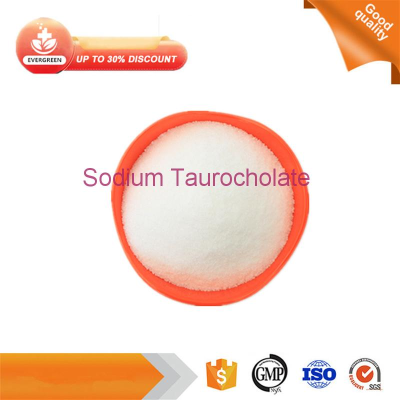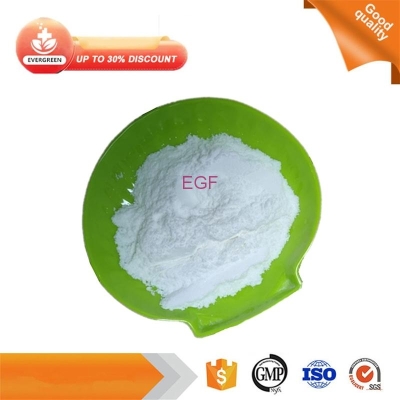-
Categories
-
Pharmaceutical Intermediates
-
Active Pharmaceutical Ingredients
-
Food Additives
- Industrial Coatings
- Agrochemicals
- Dyes and Pigments
- Surfactant
- Flavors and Fragrances
- Chemical Reagents
- Catalyst and Auxiliary
- Natural Products
- Inorganic Chemistry
-
Organic Chemistry
-
Biochemical Engineering
- Analytical Chemistry
- Cosmetic Ingredient
-
Pharmaceutical Intermediates
Promotion
ECHEMI Mall
Wholesale
Weekly Price
Exhibition
News
-
Trade Service
*For medical professionals only, please
pay attention to elderly patients!
Copyright Statement
This article is reprinted Welcome to forward the circle of friends - End -
*The medical community strives to be accurate and reliable in the review of its published content, but does not make any promises and warranties about the timeliness of the published content, the accuracy and completeness of the cited materials (if any), etc.
, nor does it assume any responsibility
arising from the outdated content or the possible inaccuracy or incompleteness of the cited information.
Relevant parties are requested to check
separately when adopting or using this as a basis for decision-making.
pay attention to elderly patients!
A 90-year-old birthday star who developed symptoms of vomiting, diarrhea and fever after eating unclean food is a typical acute gastroenteritis
.
After hospitalization, symptoms disappeared soon after anti-infective treatment, and fever did not return
.
Unexpectedly, when preparing to be discharged, the elderly suddenly had unbearable abdominal distention, difficulty defecating and urination, and found that the abdomen was significantly distended during physical examination, and the whole abdominal percussion showed drum sounds, and bowel sounds were weakened
.
Abdominal CT showed significant expansion of the colon, intestine and bladder, and large amounts of urine retention
.
The bowel is significantly dilated, is it a toxic megacolon?
Toxic megacolon is an uncommon but very serious complication of colitis, which can be secondary to ulcerative colitis, pseudomembranous enteritis and other colonic inflammations, due to the destruction of the mucosal barrier and the entry of bacterial toxins into the blood
.
Patients with toxic megacolon present with severe abdominal distension, abdominal pain, decreased gas, and may be accompanied by fever and toxic shock
.
Fig.
1 Blood routine results of patients presenting with megacolon
According to Jalan's diagnostic criteria for toxic megacolon, fever > 38.
6°C, heart rate > 120 beats per minute, white blood cell > 10.
5x109/L, and anemia, 3 of these 4 criteria, plus 1 of 4 dehydration, altered mental status, electrolyte abnormalities, or hypotension
.
However, the old gentleman's laboratory tests did not meet the diagnostic criteria, and the simultaneous bladder distension and urinary retention could not be explained
by toxic megacolon.
Regardless of the cause of megacolon, the treatment options are the same, that is, fasting, gastrointestinal decompression, and exhaust therapy
.
Because this patient also had urinary retention, we gave the patient an indwelling catheter.
After the above treatment, the patient's symptoms were significantly reduced, and the bulging abdomen gradually returned to normal
.
Through multidisciplinary consultation, we consider that the cause of megacolon and bladder dilation in this patient is due to bacterial toxin absorption into the bloodstream, affecting the function of smooth muscle of the bowel and bladder, resulting in acute pseudocolonic obstruction and bladder dilation
.
Fig.
2 CT results of abdomen in patients presenting with megacolon
Acute pseudocolonic obstruction, also known as Ogilvie syndrome, most commonly occurs in older hospitalized patients undergoing surgery, trauma, or infection, and may also be induced in patients with electrolyte abnormalities and anticholinergics
.
Signs and symptoms typical of Ogilvie syndrome include abdominal pain, bloating, nausea, vomiting, and imaging findings of lumen dilation with megacolon-like changes
.
The pathogenesis of Ogilvie syndrome is not well understood, but it may be due to colonic motility disorders caused by dysfunction of the enteric nervous system, severe dilation of the colon, and even intestinal perforation
.
Our elderly patient developed significant abdominal distention, decreased bowel movements and exhaust after intestinal infection, and abdominal CT to detect megacolon, consistent with the diagnosis
of Ogilvie syndrome.
After timely treatment, the patient's symptoms improved and there were no serious complications
such as intestinal perforation.
After the condition was controlled, before we could breathe a sigh of relief, the patient's condition took a sharp turn for
the worse.
The old man suddenly developed high fever, diarrhea, and a little pus and blood attached to
the stool.
Is the intestinal infection getting worse again, or is there a new condition?
Considering that the patient is an elderly man, this time there is a serious infection, has been treated with broad-spectrum antibiotics, and after the inflammation is controlled, fever and diarrhea are reproduced, and the first thing to suspect is antibiotic-related enteritis
.
In view of the weakness of the elderly and unable to tolerate colon cleansing drugs, we performed colonoscopy after giving the elderly enema, and found that the old man's rectum and sigmoid colon had a large number of pseudomembranes attached, and the test for Clostridium difficile toxin was also positive
.
The fever and diarrhea in the elderly are related
to antibiotic-associated enteritis caused by Clostridium difficile infection (CDI).
Difficult Clostridium difficile (CD), a gram-positive anaerobic bacillus, is the leading cause of antibiotic-associated enteritis, and almost all pseudomembranous enteritis is caused
by CD infection.
CDI is mainly caused by the overproduction of toxin-producing CDs leading to dysbiosis of intestinal flora and the release of toxins, and the main clinical symptoms are fever, abdominal pain, and watery diarrhea
.
Risk factors for CDI
Greater than 65 years old; recent (<4 weeks) hospitalization; recent (< 4 weeks) use of antimicrobials; in particular broad-spectrum or multibiotics; Long-term use of immunosuppressants; Patients
who have previously developed CDI.
Our patient is an elderly patient who has recently been hospitalized on broad-spectrum antibiotics and is therefore at high risk for
CDI.
Diagnostic criteria for CDI
The patient presents with moderate to severe diarrhea or intestinal obstruction and meets any of the following conditions: (1) positive stool test for CD toxin or toxin-producing CD; (2) Endoscopic or histopathological examination showed pseudomembranous enteritis
.
Our patients meet both diagnostic criteria to confirm the diagnosis of CDI
.
Immediately after the diagnosis was confirmed, we discontinued broad-spectrum antibiotics and gave patients oral metronidazole 500 mg every 8 hours
.
After 7 days of treatment, the patient's symptoms completely disappeared, and the stool and body temperature returned to normal
.
The old birthday star who had gone through hardships was finally safely discharged from the hospital
.
After discharge, the patient continued to take metronidazole orally for 7 days, and his condition was stable and did not relapse
.
A simple gastrointestinal infection can be dangerous when it occurs in an elderly patient
.
In the treatment of gastrointestinal infections in elderly patients, it is important to pay attention to the changes
in the patient's condition.
If the patient presents with significant abdominal distension, gas, and decreased bowel movements, consideration should be given to the possibility of complicated toxic megacolon or acute pseudocolonic obstruction
.
Elderly patients who have been on broad-spectrum antibiotics for a long time should prevent the occurrence
of antibiotic-associated enteritis.
References:
[1] Alavi K, Poylin V, Davids JS, et al.
The American Society of Colon and Rectal Surgeons Clinical Practice Guidelines for the Management of Colonic Volvulus and Acute Colonic Pseudo-Obstruction.
Dis Colon Rectum.
2021; 64(9):1046-1057.
[2] Haj M, Haj M, Rockey DC.
Ogilvie's syndrome: management and outcomes.
Medicine (Baltimore).
2018; 97(27):e11187.
[3] SUI Jinke, ZHANG Wei.
Etiological analysis and surgical method selection of Megacolon in adults[J].
Chinese Journal of Gastrointestinal Surgery,2021,24(12):1054-1057.
)
[4] XU Yingchun, ZHANG Man.
Expert consensus on the diagnosis and treatment of Clostridium difficile infection in adults in China.
Union Medical Journal, 2017, 8: 131-138
Copyright Statement
This article is reprinted Welcome to forward the circle of friends - End -
*The medical community strives to be accurate and reliable in the review of its published content, but does not make any promises and warranties about the timeliness of the published content, the accuracy and completeness of the cited materials (if any), etc.
, nor does it assume any responsibility
arising from the outdated content or the possible inaccuracy or incompleteness of the cited information.
Relevant parties are requested to check
separately when adopting or using this as a basis for decision-making.







